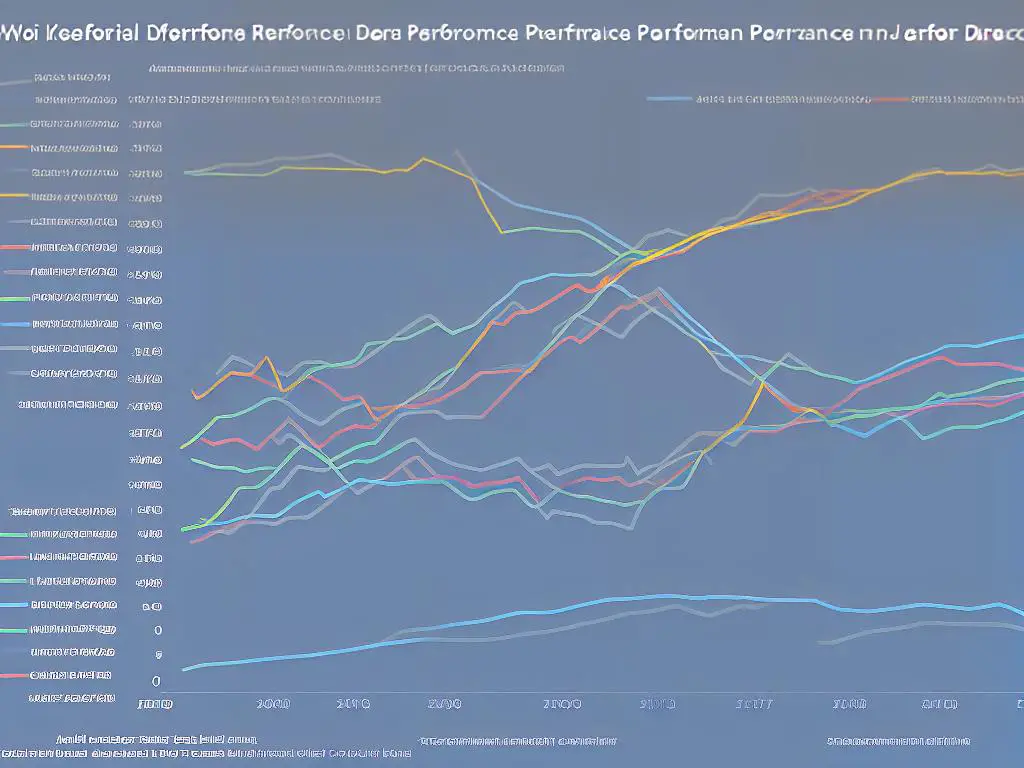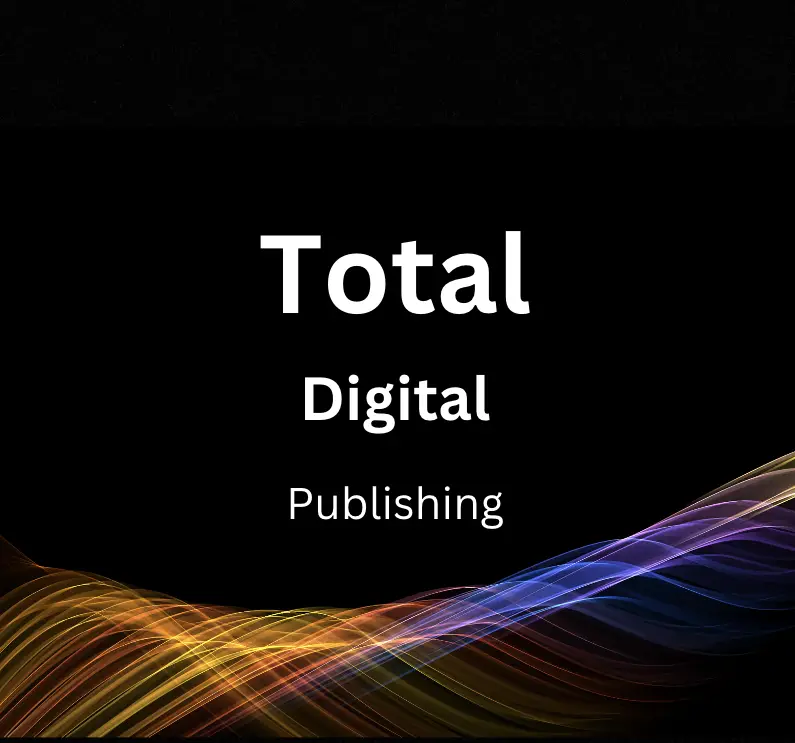In today’s competitive online landscape, website owners and content creators are constantly striving to improve their search engine rankings to attract more traffic and establish a strong digital presence. One crucial aspect in achieving this is understanding the role of domain age and content quality in search engine rank optimization. This essay delves into the significance of domain age and high-quality content, offering valuable insights on effectively enhancing website rankings and standing out on the internet.
Impact of domain age on ranking
The Importance of Domain Age on Ranking
Domain age is an important factor that search engines like Google consider when determining the ranking and credibility of a website. Although it is not a direct ranking factor, as confirmed by Google’s John Mueller, it plays an important role in establishing authority for a website over time. The more mature a domain is, the more likely search engines are to view the website as a reliable and authoritative source of information.
When a domain is first registered, search engines often have little to no data on the website’s content, audience engagement, and build history. This makes it difficult for search engines to determine the site’s credibility and relevance for users, which can potentially lower its search ranking. As the domain ages and its content becomes more established, search engines tend to have a better understanding of the website’s quality, which can lead to stronger search engine rankings.
Advantage of Older Websites Over Newer Ones
Older websites generally have a few key advantages over newer ones when it comes to search engine rankings. First, they have had more time to build an audience and generate a steady stream of traffic. Second, they have likely amassed a higher quantity of backlinks, which can signal to search engines that a website is a valuable source of information. Additionally, older domains have had more time to build a history of user trust and to ensure that their content is relevant and updated to the expectations of their audience.
Moreover, a longer domain registration period can be a signal that the website owners are serious about their online presence and have a long-term commitment to building their brand online. Websites with a long registration window are also less likely to be spam sites or engage in fraudulent activities, which search engines keep a close eye on.
Industry Observations on the Correlation Between Age and Ranking
Studying the correlation between domain age and ranking in search engines is a topic of interest within the digital marketing industry. One widely cited study, conducted by Ahrefs, analyzed the top 10 search results for 2 million random keywords and found that the average age of a first page Google result was around three years, while only 22% of pages that ranked for high-volume keywords were less than a year old. This suggests that there may be a relationship between age and ranking, albeit not necessarily a causal one.
It’s important to note, however, that a website’s content quality, user experience, and relevance will have a much larger impact on its overall search ranking than the age of its domain. Older websites that fail to maintain their content or fail to provide an engaging user experience may still struggle with search rankings, despite their age-based advantages.
In conclusion
While domain age may not be a standalone deciding factor in search engine rankings, it certainly plays a significant role in establishing a website’s credibility, authority, and trustworthiness. With this in mind, website owners should focus on consistently creating high-quality content, optimizing their site for user experience, and continuously updating their website, regardless of the age of their domain, to ensure improved search visibility and ranking potential.

Role of content quality in ranking
The Role of Content Quality in Website Ranking
Content quality is a key factor that website owners must thoroughly consider when aiming for online success, as it goes hand-in-hand with domain age to achieve better search rankings. High-quality content is essential for both older and newer websites, as search engine algorithms reward sites that provide valuable and informative content to users. In addition to relevance and user engagement, content should also be optimized for readability and search engine algorithms to achieve better overall rankings for websites of various ages.
In summary, the combination of domain age and content quality plays a significant role in determining a website’s search ranking. By focusing on both factors, website owners can improve their chances of achieving online success and building a strong online presence, regardless of the age of their domain.
The Importance of Relevance
Relevance is a critical aspect of content quality, as it ensures users find the information they need on your website. This means that your content should be in line with the target audience’s interests, needs, and preferences. The more relevant your content is to the users, the more likely they are to spend time on your website, explore your offerings, and even share your content on social media. All these factors contribute to improving the website’s ranking, regardless of its age.
Boosting User Engagement
Another crucial aspect of high-quality content is user engagement. In today’s highly competitive digital landscape, it’s not enough just to have relevant content – your website needs to capture users’ attention, encourage them to interact with your content, and keep them engaged. Interactive content elements, media-rich presentations, and storytelling techniques are among the various ways website owners can increase user engagement, which translates to better site rankings in search engine results pages.
Readability and Presentation
Readability is another important factor in determining content quality. A user-friendly layout, clear headings, short paragraphs, and well-structured sentences can make your website content more accessible and engaging for users. Presenting your content in an easy-to-read format is essential for both human users and search engine algorithms. The better the readability and presentation of your content, the higher its chances are of being ranked highly in search results.
Optimization for Search Engine Algorithms
Content optimization for search engine algorithms, also known as search engine optimization (SEO), plays an essential role in website rankings. High-quality content should be optimized with relevant keywords, meta tags, and descriptive URLs. SEO techniques, such as using headings, alt tags for images, and internal and external linking, ensure that your content is efficiently crawled and indexed by search engines. This ultimately leads to better search engine rankings for websites, regardless of their age.
The Significance of Regular Content Updates
Finally, regularly updating your website’s content is crucial for maintaining high-quality content. This means adding new, relevant, and engaging content regularly so that your site remains useful and informative to users. Regular content updates signal to search engines that your website is active and provides value to users, which leads to improved rankings in search results.
The Importance of Content Quality in Website Ranking
High-quality content is a crucial aspect of website ranking, encompassing elements such as relevance, user engagement, readability, and optimization for search engine algorithms. A site’s content significantly contributes to its success and enables it to achieve better rankings in search engine results pages, regardless of its age. Website owners aiming to reach and maintain high rankings within their respective industries should prioritize adopting a strategic approach to improving content quality.

Strategies to improve content rank
Considering Website Age and Content Rank in Search Engine Rankings
Website age is an important factor that search engines evaluate when determining a site’s authority and reliability. Older websites are often perceived as more trustworthy and well-established, which can positively affect their search engine rankings. Content rank, meanwhile, refers to the position of a specific webpage or piece of content within search engine results. The higher a webpage’s rank, the more likely it is to receive organic traffic. Both website age and content rank play a critical role in achieving and maintaining a competitive edge in any given industry.
Strategies to Improve Content Rank
To enhance the rank of your content and optimize your website’s age, there are several content marketing strategies you can employ, including:
Keyword Research
Keyword research is the process of identifying relevant search terms that users are likely to search in a search engine. By targeting these keywords within your content, you’ll have a higher chance of ranking well in search engine results pages (SERPs). Use tools such as Google Keyword Planner, Ubersuggest, or Ahrefs to discover popular search queries related to your niche, and strategically include them in your content.
On-page Optimization
On-page optimization involves improving both the content and technical aspects of a webpage to make it more appealing to search engines and users. Some key practices include:
- Writing engaging and informative content that offers value to the reader
- Properly structuring content with headings (H1, H2, H3 tags) and paragraphs
- Optimizing images by using descriptive file names, alt tags, and compressing the file size
- Ensuring that your website’s URL structure is descriptive and concise
- Including relevant meta tags, such as title tags and meta descriptions, to summarize the content of each page
Link Building Techniques
Link building is the process of acquiring backlinks from other websites to your own site. Quality backlinks are essential for improving content rank, as they signal to search engines that other reputable sites recognize the value of your content. Tactics to build quality backlinks include:
- Creating valuable content that naturally attracts links from other websites
- Guest posting on authoritative blogs within your niche
- Reaching out to influencers and industry leaders to request backlinks
- Employing broken link building or skyscraper techniques
Social Media Promotion
Promoting your content via social media channels can increase exposure, driving more traffic to your website and improving its content rank by attracting more organic users. Share your content across relevant social media networks, such as Facebook, Twitter, LinkedIn, and Instagram, to reach a broader audience and encourage social shares.
Content Auditing
Performing regular content audits can help you identify underperforming content, detect gaps in your content strategy, and make updates to keep your webpages fresh and relevant. Update outdated information, remove low-quality or thin content, optimize underperforming pages with better keywords or on-page elements, and add internal links to better connect your webpages. These improvements can help boost your content rank in search engine results.
Conclusion
A well-executed content marketing strategy is essential for boosting your website’s content rank and improving its position on SERPs, which in turn contributes to increased organic traffic. By using strategies such as keyword research, on-page optimization, link building techniques, social media promotion, and content auditing, you can optimize your website for both search engines and users. Focusing on both website age and content ranking will help establish your site’s authority and enhance visibility in the digital world.

Photo by ilyapavlov on Unsplash
Monitoring and measuring content performance
Understanding the importance of monitoring and measuring content performance
It is vital for website owners to consistently track and analyze their site’s performance through the use of key performance indicators (KPIs), analytics tools, and changes in ranking. Monitoring these metrics provides valuable insights into the efficacy of your website’s content and overall strategy, allowing for data-driven decisions that improve performance. In the following paragraphs, we will explore the significant roles that website age and content rank play in monitoring and measuring the success of your website.
Website Age and its Impact on Content Performance
Website age refers to the length of time that a website has been active and available to users. Older, more established websites tend to have better search engine rankings and higher levels of user trust compared to newer sites. This is because search engines, such as Google, consider the age of a domain as one of the factors that influence website ranking. As a result, older websites often have an advantage in search engine results pages (SERPs) and may experience higher levels of organic traffic.
However, this doesn’t necessarily mean that the content on older websites is always better or more informative than that found on newer sites. To ensure that your website remains competitive in terms of content quality and relevance, it’s essential to regularly monitor the performance of your site’s content.
Key Performance Indicators for Content Performance
There are numerous KPIs to help you understand the performance of your website’s content. Some of the most important KPIs include:
- Organic traffic: The number of visitors who find your site through search engines as a result of your content.
- Bounce rate: The percentage of visitors who immediately leave your website after only viewing one page, often as a result of poor content or user experience.
- Time on site: The average amount of time users spend browsing your website, which can be an indicator of content relevance and overall user engagement.
- Social shares: The number of times users share your content on various social media platforms, reflecting the value and reach of your content.
- Conversion rate: The percentage of users who complete a specific action, such as making a purchase or signing up for a newsletter, after engaging with your content.
Analytics Tools for Measuring Content Performance
To effectively monitor these KPIs and gain a comprehensive understanding of your content’s performance, it’s crucial to utilize analytics tools. Google Analytics is one of the most widely-used tools for tracking website metrics, including traffic sources, user engagement, and goal conversions. In addition to Google Analytics, there are several other analytics tools available such as SEMrush, Ahrefs, and Moz that offer valuable insights into your content’s performance.
Using Data to Improve Content Performance
Once you’ve gathered data on your content’s performance, use these insights to make informed decisions about your content strategy. By analyzing KPIs and monitoring changes in your website’s ranking, you can identify trends and areas for improvement. This may involve updating older content, creating new, high-quality content based on user interests and needs, or optimizing content for better search engine visibility.
In conclusion
regularly monitoring and measuring content performance is essential for staying competitive and maintaining a strong online presence—it allows you to identify and address any shortcomings within your content strategy. By understanding the role that website age and content rank play within this process, you can make more informed decisions and achieve greater success with your website.

Ultimately, the effectiveness and success of a website lie in the ability to constantly adapt and fine-tune its content strategy in response to changes in user behavior and search engine algorithms. By incorporating essential components such as domain age, content quality, and robust content marketing tactics, website owners can effectively climb the search engine rankings and build credibility among their target audience. Emphasizing the importance of monitoring and measuring content performance allows for data-driven decisions that strengthen online visibility, propelling the website towards long-term growth and success.

